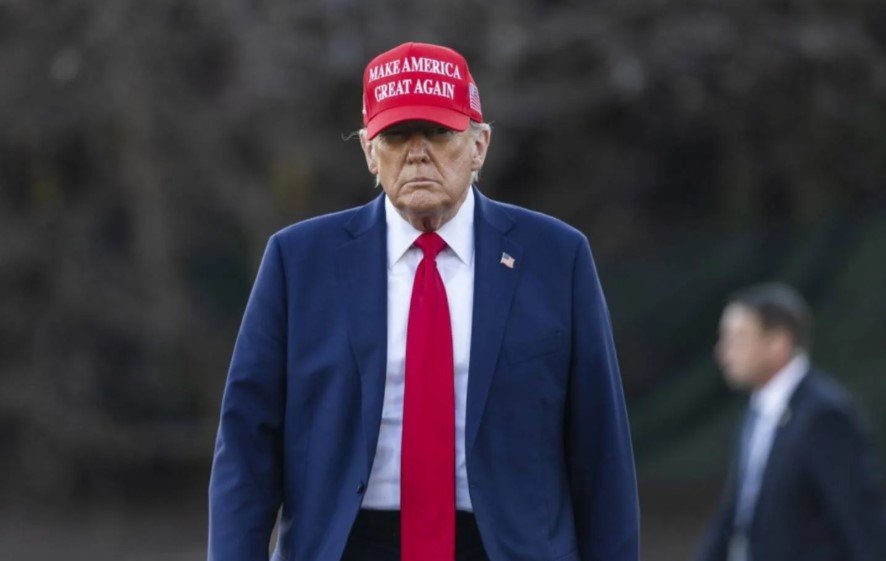A quiet but strategic overture from Hamas—a move framed as a “goodwill gesture”—has stirred ripples far beyond Gaza. As former U.S. President Donald Trump prepares for a high-stakes visit to the Middle East, the group has seized on what it sees as a widening fault line between Trump and Israeli Prime Minister Benjamin Netanyahu.
The timing was anything but random. A Hamas official tells Newsweek the offer to release an Israeli-American hostage wasn’t just humanitarian—it was political. The group hopes to fracture the long-standing U.S.-Israel consensus that’s kept it boxed into diplomatic isolation. And it’s betting on Trump’s ego, ambition, and regional goals to do the heavy lifting.
A Calculated Move with an Eye on Trump
Basem Naim, a senior Hamas spokesperson, didn’t sugarcoat the group’s motives. Speaking to Newsweek, he said Hamas views Trump’s interests in the Middle East as diverging from Netanyahu’s.
That divergence, he argued, could offer Hamas a path to push for terms more favorable to ending the current war in Gaza.
“Given the unlimited support of the American administration for the entity,” Naim said, using the group’s standard euphemism for Israel, “any disagreement between them would certainly be a positive development.”
He pointed out that continued conflict risks derailing Trump’s broader strategic plans in the region, potentially making him more amenable to pressuring Israel into a ceasefire or negotiated terms.

Hostage Release Framed as Political Signal
The release news surrounding Edan Alexander, a dual Israeli-American citizen, was met with relief by his family and supporters. But Hamas emphasized the timing and framing of the gesture as a signal.
The group, widely designated as a terrorist organization by the U.S., EU, and others, insists it won’t accept any deal that doesn’t check three boxes:
-
Full withdrawal of Israeli forces from Gaza
-
A complete end to the ongoing war
-
Gaza’s post-war reconstruction led by local residents, not foreign administrators
Hamas believes giving Trump a political “win” in the form of a hostage release ahead of his visit could buy them negotiating space. But there’s no illusion about the stakes.
Netanyahu Not Backing Down—Yet
The Israeli Prime Minister, known for his defiance under pressure, hasn’t signaled any shift in position despite growing international concern. He maintains that military operations must continue until Hamas is dismantled and all hostages are freed unconditionally.
Behind closed doors, however, cracks are appearing.
U.S. intelligence officials have quietly voiced concerns that Netanyahu’s hardline stance may not be sustainable in the long term. According to a leak reported by Axios earlier this month, American diplomats have advised Trump’s team to distance itself from Netanyahu if peace talks are to be re-ignited.
One U.S. official familiar with the conversations summed it up bluntly: “Trump wants a legacy win, not a forever war.”
A War of Optics as Much as Rockets
This is as much about appearances as it is about substance. Trump is eyeing foreign policy victories that could distinguish him from President Joe Biden ahead of the 2024 election cycle. Hamas knows this.
That’s what makes their gesture so potent—not because it changes facts on the ground, but because it reframes the narrative.
Hamas, long cast in Washington as a spoiler or aggressor, is trying to project pragmatism without losing face. And Trump, for all his unpredictability, has historically welcomed bold plays—especially those that make headlines.
Here’s where the geopolitical calculus gets tricky:
| Factor | Netanyahu’s Position | Trump’s Possible Stance | Hamas’s Strategy |
|---|---|---|---|
| War Continuation | Supportive, aggressive | Preferably limited | Must end immediately |
| U.S. Hostage Politics | Sensitive, leverage point | High optics value | Bargaining chip |
| Gaza Reconstruction | Israel-led or external | Unclear | Local-led only |
| Ceasefire | Reluctant | Potentially open | Mandatory |
Shifting Sands in Regional Politics
Of course, none of this unfolds in a vacuum. Egypt and Qatar remain the primary intermediaries in any serious negotiation involving Hamas. But both nations have signaled frustration with Israel’s resistance to compromise.
Meanwhile, internal Israeli politics remain volatile. Netanyahu faces growing protests and legal scrutiny, and his coalition’s far-right members oppose any perceived concessions.
In short: this isn’t just about Gaza. It’s about legacy, leverage, and timing.
American Politics Loom Large
Trump’s ambitions in the region mirror his transactional style. If he sees political benefit—especially one that contrasts with Biden’s cautious diplomacy—he’s likely to entertain unconventional approaches.
Basem Naim made it clear. “Hamas will not accept any agreement that does not lead to an end to the war.” That may not sit well with Washington or Tel Aviv. But with every passing day, Hamas seems more confident that the global chessboard is shifting—and they’ve got a few pieces left to play.
